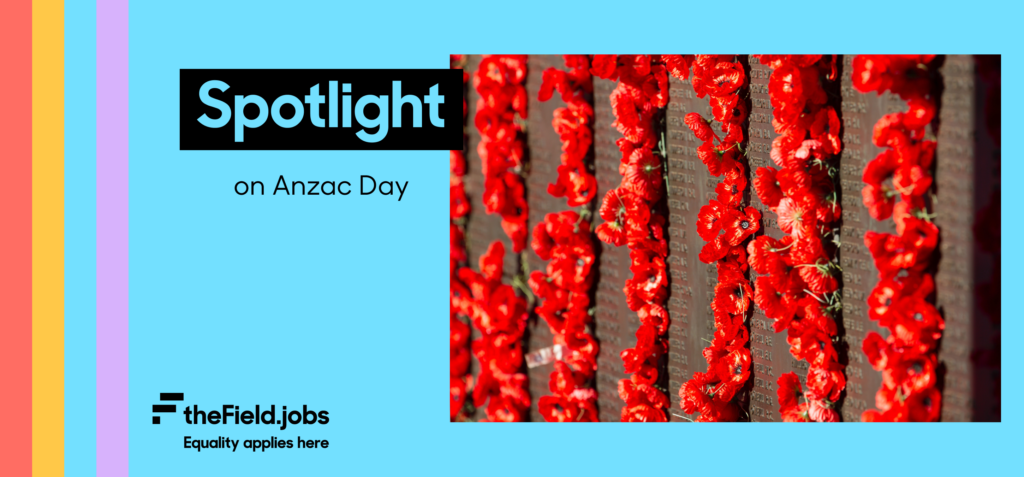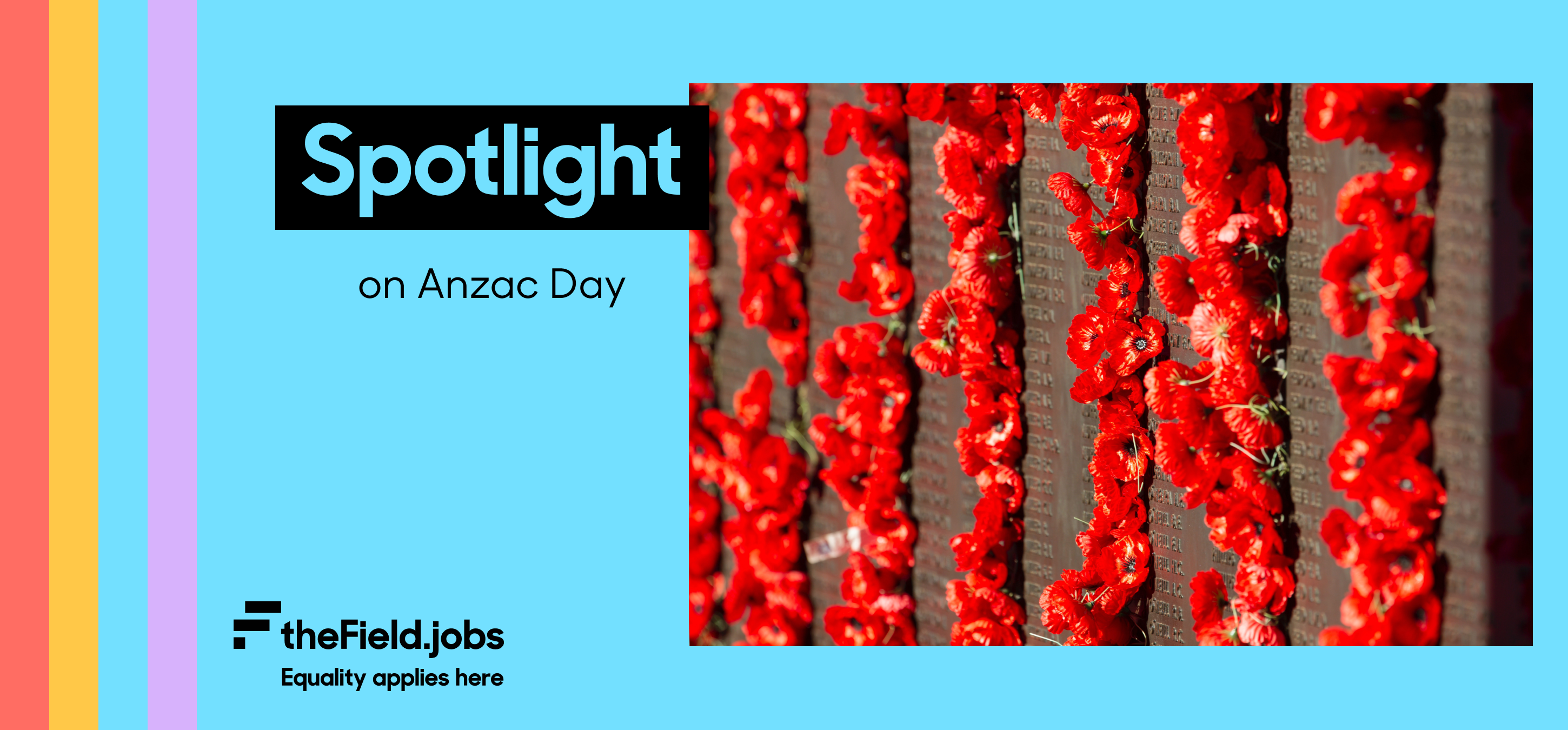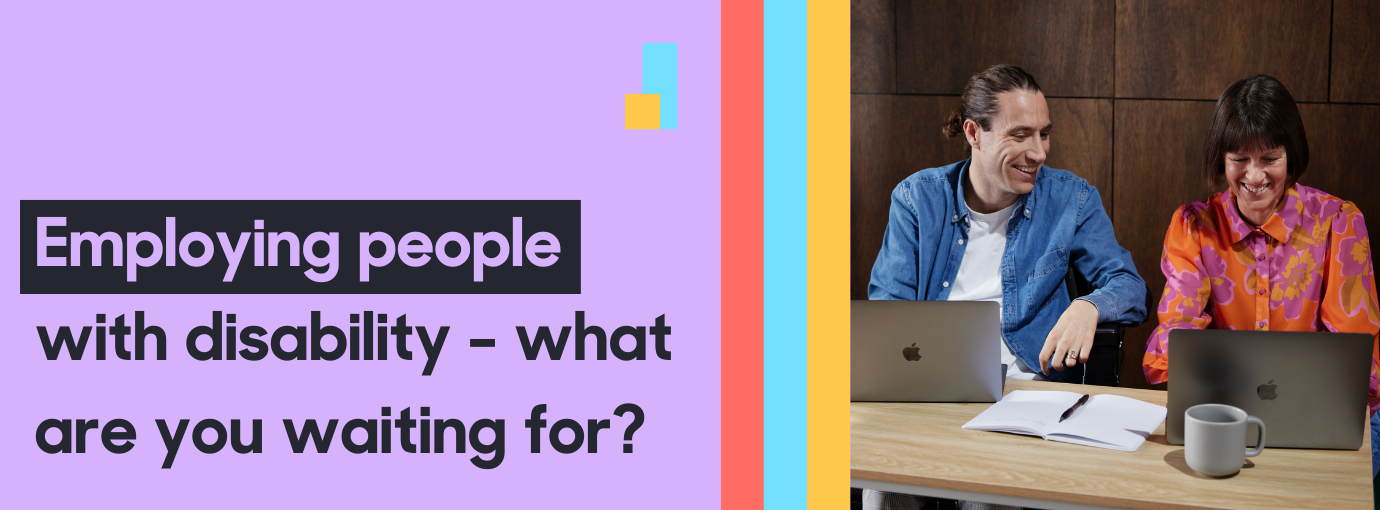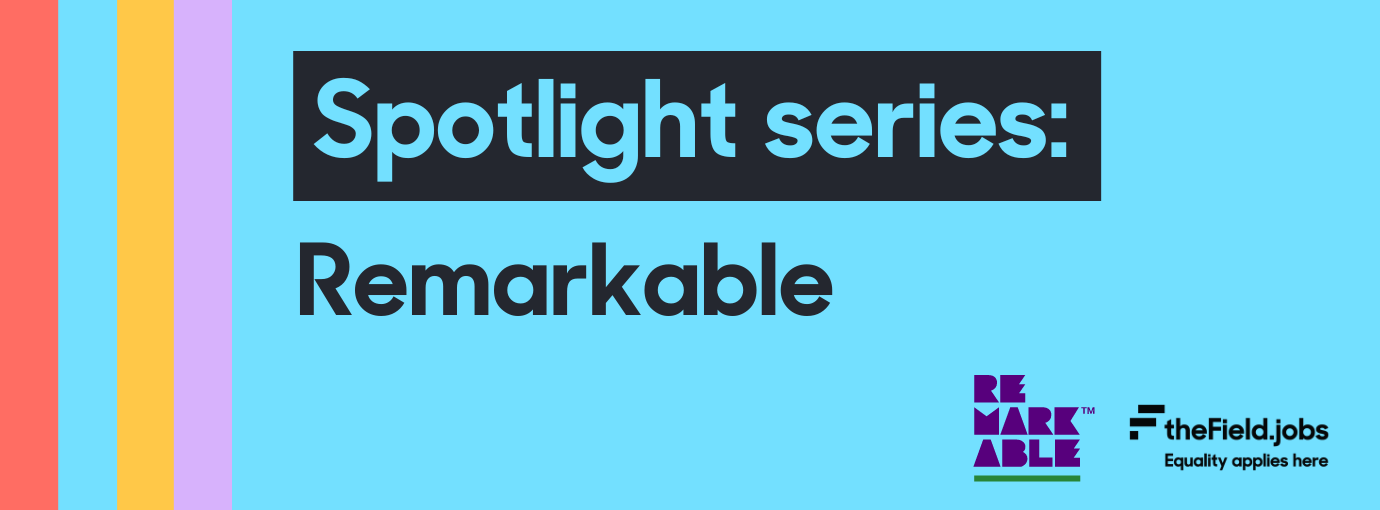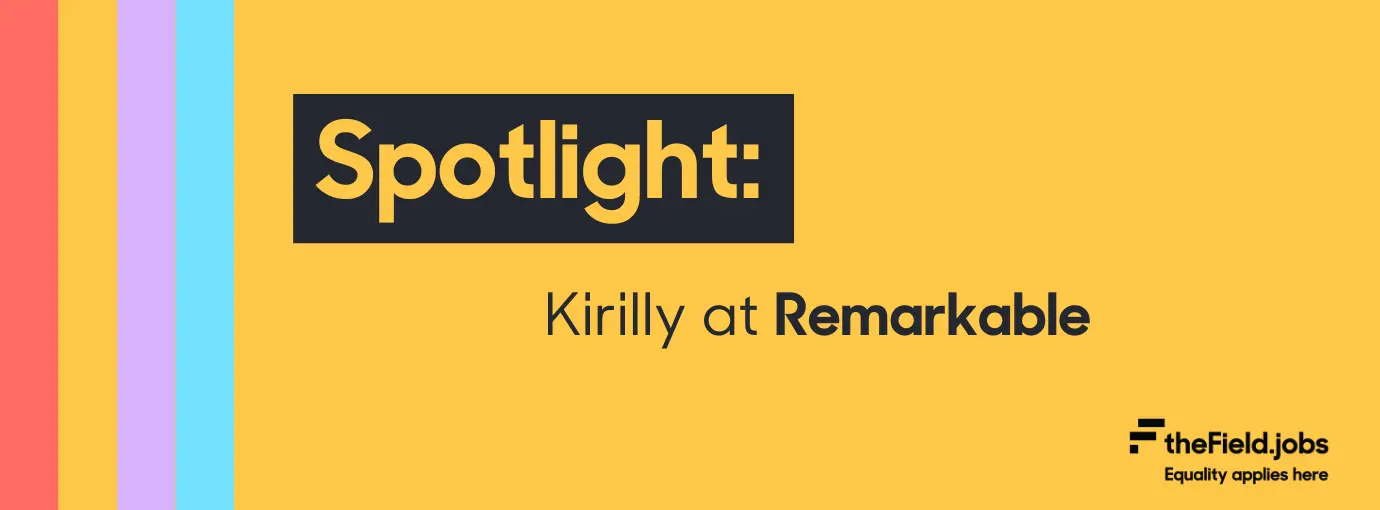In recognition of Anzac Day, this month’s Spotlight Series focuses on the experiences of three Aussie veterans, each with a different insight into post-military employment and connection to disability.
Garth Callender, Rhiannon Busch and Joel Sardi have all served Australia in deployments overseas, have extensive military experience, and a close personal connection with the meaning of Anzac Day. We talked with each of them about their individual history, the challenges transitioning into mainstream employment, and the transferable skills a lot of military personnel can bring to civilian jobs.
Garth Callender
Garth Callender is a former Lieutenant Colonel in the Australian Army, with more than 20 years of military service. In 2004, he was injured in an insurgent bomb attack in Baghdad, which shaped his later career and saw him pursue roles in specialist technical intelligence. After 3 deployments, Garth now works as a public speaker in the corporate industry, providing leadership, decision-making and crisis management solutions. He remains an active member of the Army Reserve.

the Field:
Jumping straight in, why is providing support to veterans through the transition from serving on active duty to mainstream employment so important?
Garth:
So much of my motivation comes from my own experiences leaving the Defence Force and struggling to find appropriate work. Australian employers just did not understand how my skills and experience would translate to their workplace. Likewise, I struggled to translate my skills and it took me several years to really understand how relevant these skills and experiences genuinely are to civilian workplaces.
In 2016, after three years out of the Army, I was given an opportunity to start to change these perceptions. I led a government employment program to assist veterans like me find suitable, sustainable and meaningful employment. Subtly, I also used it as a way to shift the perceptions of who we are: more often than not young people looking for our next career following our service to this country. Back in 1950s Australia, veterans were viewed as pillars of our society – trained and tested beyond most, with much to offer when they returned from the Second World War or the Korean War to civilian life. I believe we are on the cusp of a similar positive shift in how veterans are viewed, and I aim to help tip the balance.
the Field:
What are some of the barriers veterans face when looking for mainstream employment?
Garth:
Consultation and data collected to date shows that veterans experience difficulty communicating their military skills in a civilian context. This results in some experiencing unemployment or being employed in unsuitable roles. The problem is compounded by a general lack of understanding of veterans’ skills by public and private employers. There are also processes and language associated with civilian recruitment which is not well understood by veteran candidates.
the Field:
What advice can you give to veterans who are unsure of what skills or value they can bring to a civilian workplace?
Garth:
Three points:
- Your military background offers employers true cognitive diversity. You will look at situations differently, be able to order your thoughts more succinctly, and problem solve.
- A military mind can have many insights and skills that are highly relevant to civilian organisations, especially in the area of leadership and management.
- Understand that you will need to shift your professional identity – no longer are you a soldier, sailor or aviator. Rather you are someone with an incredible professional background who now needs to reshape their understanding of who they are. Not an easy task but it will ensure you get the most out of your next career.
the Field:
Lastly, Anzac Day is approaching. What does it mean to you and how do you choose to acknowledge it?
Garth:
When I consider the importance and poignancy of Anzac Day, I cannot help but reflect on this day back in 2006. I was part of a 110-strong combat team working in Baghdad, Iraq. Operating at a time which was considered the height of the insurgency. A time of extreme violence throughout the country.
Four days beforehand, we lost one of our own, Jake, who had been killed in a shooting incident. That Anzac Day ceremony in Baghdad, with our makeshift cenotaph (a statue which honours lives lost at war), was really the first opportunity we had to come together as a team following Jake’s death. For us, it was an opportunity to remember our lost mate, and to mourn. But it was also an opportunity to put our current situation in perspective, to remember the hardship and the sacrifice of other Australian military personnel before us, and what they went through in the course of Australian history.
Rhiannon Busch
Rhiannon Busch grew up in a small town in North Queensland, and is a Tagalaka and Taepithiggi woman. Initially joining the army straight out of high school for the adventure and activity, she went on to complete 15 years of service. Rhiannon is now the General Manager for Indigenous Programs with JY Australia, an Indigenous and Veteran-owned professional service provider with a long history of supporting Defence and Defence industry. She currently oversees the Indigenous Development Employment Program (IDEP) which was created as a “closing the gap” initiative for First Nations people to pursue senior and executive roles within the Australian Public Service (APS) and Industry.
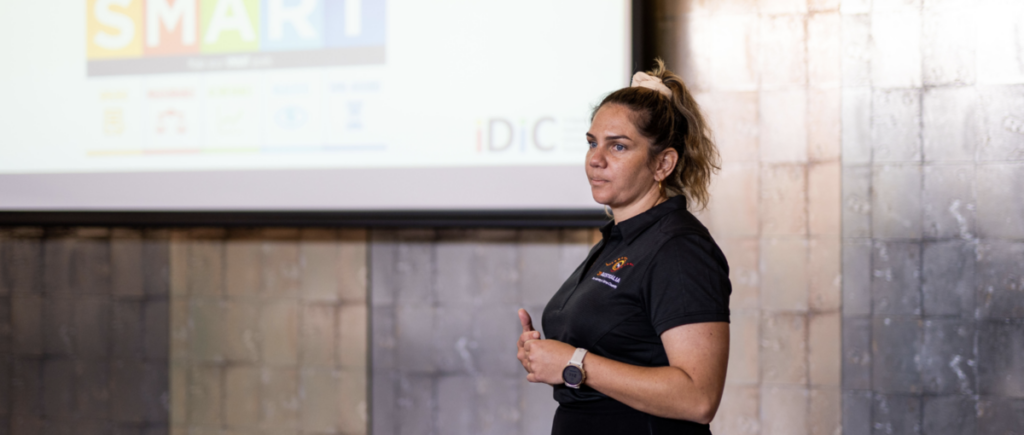
the Field:
From a personal perspective, what was your experience of the transition into more mainstream employment post your military career?
Rhiannon:
For many individuals who transition from a military career to civilian employment, adjusting to different working environments can be a challenge. This was certainly the case for me when I made the move into mainstream employment. At first, I struggled to adapt to the new workplace culture and expectations.
Fortunately, I had the help and support of JY Australia, who not only support me as an employee, but also provide transition support services to veterans more generally. They provided me with guidance and resources, and worked with me when I needed to get through some tough times. Additionally, my friends and my passion for footy helped me stay motivated and focused during this time of transition.
the Field:
How have your previous employment experiences, particularly in the military, influenced the work you now do at JY Australia?
Rhiannon:
Military service often requires individuals to develop strong leadership skills, as well as organisational and networking skills. Additionally, the military often places a strong emphasis on mentoring, which can help individuals develop the ability to guide and support others in their personal and professional growth. For me, my military service has been instrumental in my ability to guide and mentor participants in our IDEP program, helping them achieve their goals and realise their full potential. The deep connection I have to my culture, combined with the leadership and organisational skills I developed in the military, has enabled me to thrive in my career and make a meaningful difference for my community.
the Field:
In your view, what are some common barriers veterans encounter when transitioning into more mainstream employment?
Rhiannon:
Transitioning into mainstream employment in Australia can be challenging for veterans, who often face several obstacles. Some of the most common barriers include:
- Loss of identity: After leaving the military, veterans may struggle to define themselves outside of their military role and find a new sense of purpose in civilian life.
- Mental health challenges: Many veterans have experienced traumatic events during their military service, which can lead to mental health issues such as PTSD, anxiety, and depression.
- Lack of civilian work experience: Military experience doesn’t always translate directly to civilian jobs, and veterans may struggle to find employment that matches their skills and qualifications.
- Over-qualification: Some veterans may be highly qualified for certain jobs but find themselves overlooked due to employers assuming they may be too expensive to hire or unlikely to stay in the job long-term.
- Physical limitations: Years of military service can take a toll on veterans’ bodies, making it difficult to perform certain physical tasks required by some jobs.
the Field:
What supports can positively impact the employment experience for veterans, including Indigenous veterans and veterans with disability?
Rhiannon:
Implementing a Veterans Employment Program in your organisation requires an understanding of what veterans go through during their transition, what resources are available to them, and how they can be utilised to support them. It’s common for veterans to leave service with some degree of disability. Working with the individual on how they can work with their disability is important to ensure they feel valued. It also involves providing ongoing support and education within your workplace. For Indigenous employees, cultural awareness training is a crucial step in understanding the ongoing effects of colonisation and intergenerational trauma on our communities today.
the Field:
Lastly, Anzac Day is approaching. What does it mean to you and how do you choose to acknowledge it?
Rhiannon:
Anzac Day is a day on which I often reflect on how fortunate we are to have had brave men and women who fought for us. I also give special recognition to my ancestors who went to war but returned home only to face dehumanisation in their own country due to their skin colour and Aboriginal identity. I love spending this day with other veterans and catching up with mates I often haven’t seen since last Anzac Day.
Joel Sardi
Joel Sardi is no stranger to the Field family. As one of the first members of our team, Joel now works as a Stakeholder Engagement Lead for the Field, and engages with businesses about the benefits of hiring diverse employees into inclusive organisations. Joel enlisted in the Royal Australian Infantry and served five years in the Australian Defence Force (ADF), including a deployment to Afghanistan in 2013 as part of “Operation Slipper”.

the Field:
Post Army life you’ve been involved with the Field. What drew you towards working with us? Why is disability employment close to your heart?
Joel:
Working for an organisation that has purpose beyond profit is something that inspires me to work hard. Given we are changing attitudes and creating positive outcomes, this is something the children of today, tomorrow and beyond will benefit from. That is a true legacy I can believe in. Being part of the Field after having acquired my disability later in life, I provide an insight and perspective through a unique lens: Life with and without disability. Employment provides so much more than financial remuneration. It can provide us purpose, identity, and have a positive impact on our respective communities.
the Field:
Having worked on the Field from the start, how can the site benefit veterans looking for work post their military careers?
Joel:
Transitioning from a military life to civilian life is not easy. By providing meaningful employment opportunities, those discharging from their military career can find stability and purpose through the meaningful employment opportunities that exist on the Field. Much like how people with disability provide unique perspective and insight, veterans can also bring something that can only be found through the lived experience of serving. These are qualities and skill sets invaluable to any workplace.
the Field:
You have two young daughters – why do you think it’s important to teach the younger generation about ANZAC history, and disability?
Joel:
Storytelling has a place in every aspect of society. Carrying over legends about success and failure from times past is how we learn and grow. Honouring those who have served and those who have fallen is a responsibility to all of us, especially myself with respect to Esme and Luna. The individuals that leave the military have sacrificed and given so much to the country, at times to their own detriment. They may have acquired disability, visible or non visible. Storytelling in education of the younger generation is one way to pay our respects for what they have sacrificed.
the Field:
Lastly, Anzac Day is approaching. What does it mean to you and how do you choose to acknowledge it?
Joel:
As I approach Anzac Day this year, I think back on my time in the ADF with nostalgia and pride. I think about the relationships, experiences, sacrifices, the lessons, failures, and successes I lived through. 5 years that will live a lifetime inside me. I will gather on the morning of, share a moment of silence at the Greensborough War Memorial. Head to the RSL and spend the day in the company of the mates I served with, and those who served before me. I love wearing my medals out amongst my community, with my wife and girls by my side.
You can find out more about Anzac Day on the Department of Veteran Affairs website.
To search and apply for jobs, go to the Field today.
